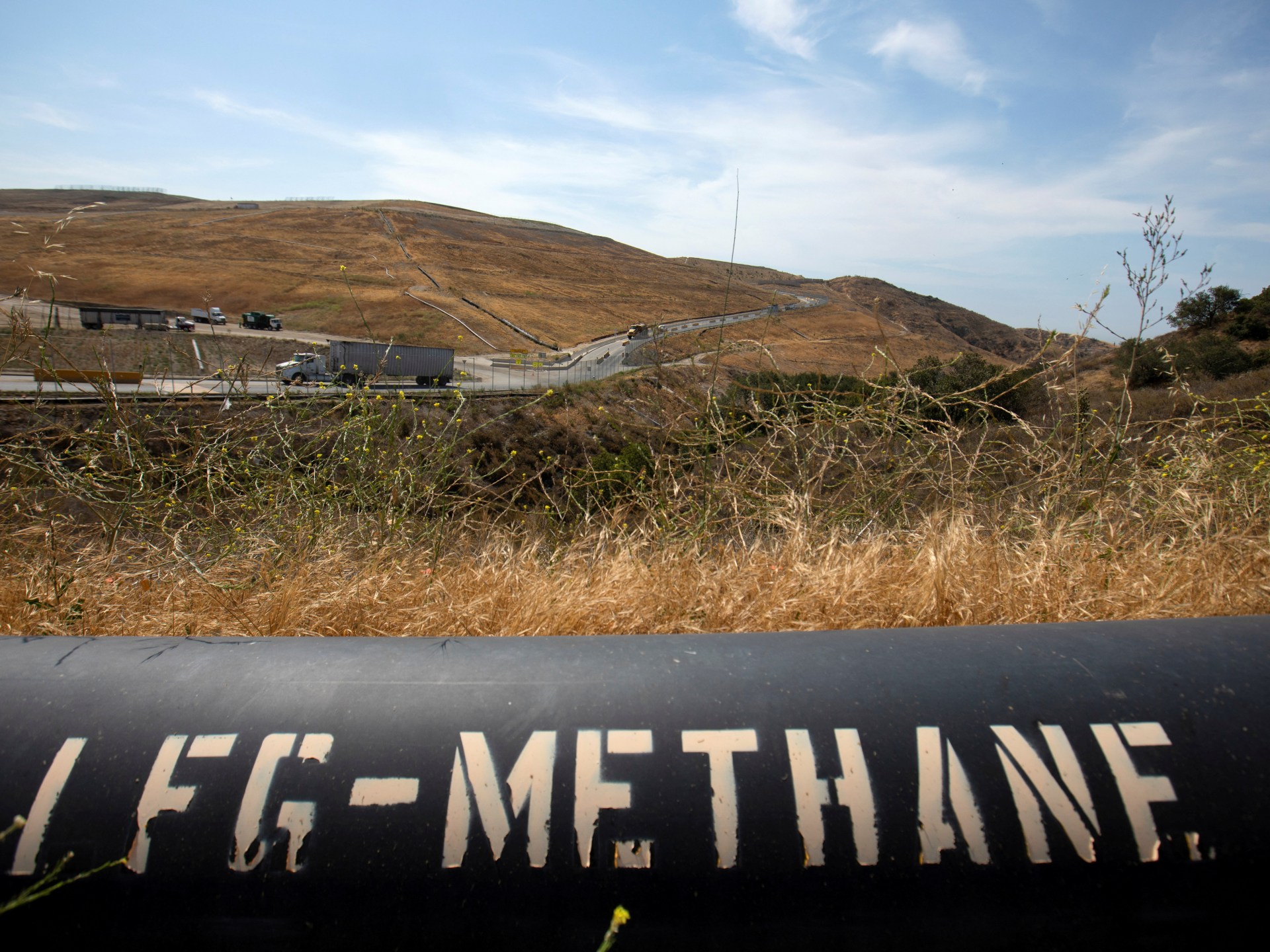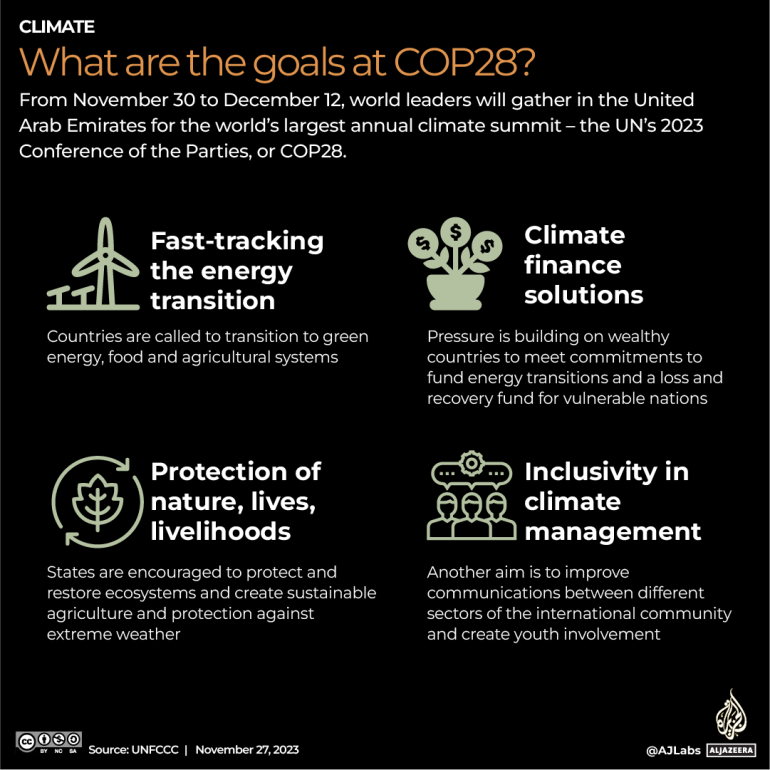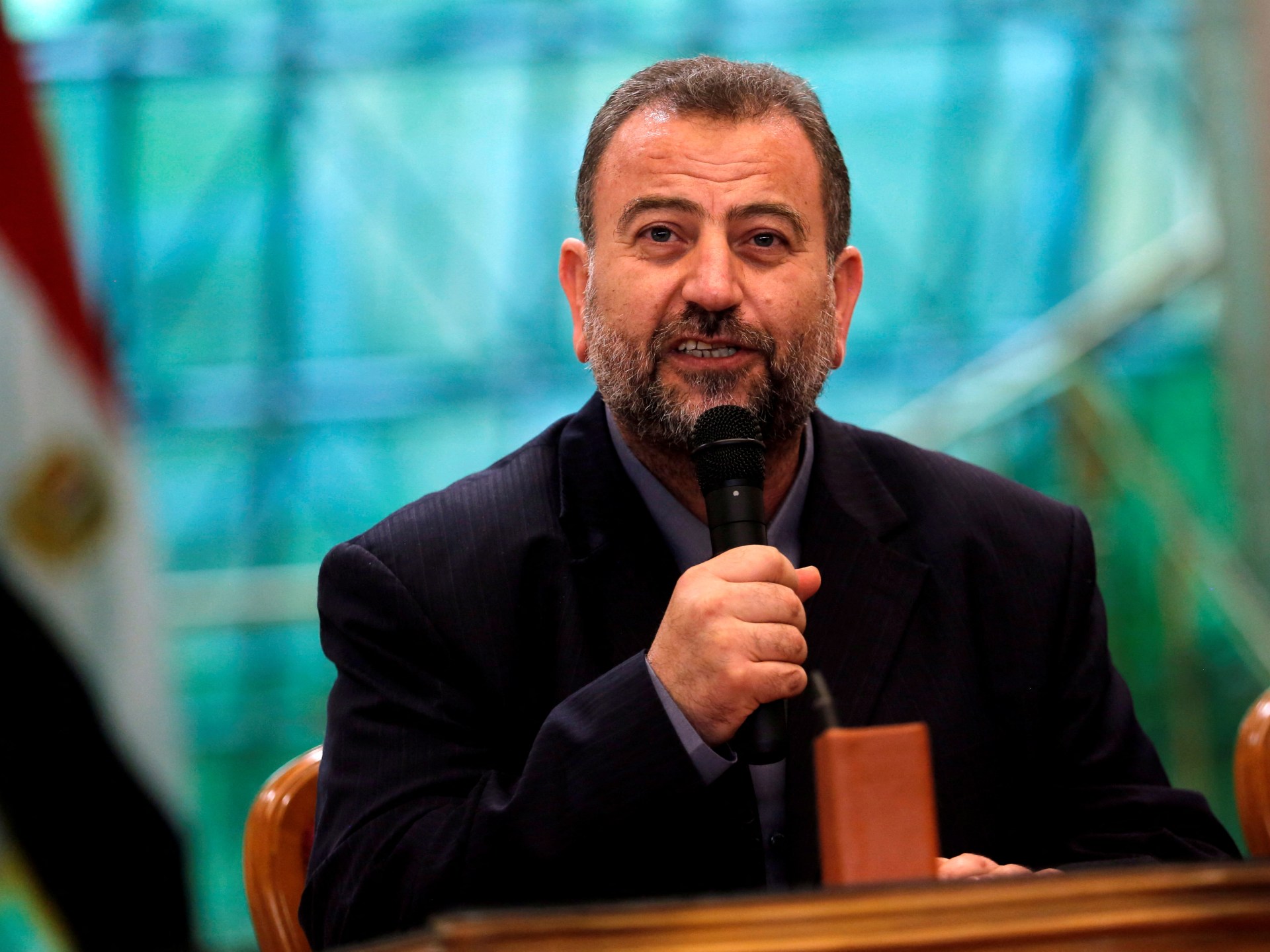
Fifty oil companies, representing nearly half of global production, have pledged to achieve near-zero methane emissions by 2030 and end routine flaring at their operations, but environmental groups have called this a “pretext.”
Sultan al-Jaber, the president of the United Nations Climate Change Summit (COP28) held in Dubai this year, made the announcement on Saturday, saying the pledge would include major national oil companies such as Saudi Aramco, Brazil’s Petrobras and Angola’s Sonangol, as well as multinational corporations included Shell, TotalEnergies and BP.
“The world does not function without energy,” said al-Jaber. “Yet the world will collapse if we do not fix the energies we use today, reduce their emissions on a gigaton scale, and quickly transition to carbon-free alternatives.”
Methane can be released at several points in an oil and gas company’s operations, from fracking to the production, transportation or storage of natural gas. It remains in the atmosphere for a shorter time than carbon dioxide, but is more than 80 times more potent than the greenhouse gas most responsible for climate change.
Al-Jaber, also head of Abu Dhabi National Oil Co., has stressed that industry support is crucial to dramatically reducing greenhouse gas emissions and limiting global warming.
However, environmental groups quickly criticized the promise. It is “a smokescreen to obscure the reality that we need to phase out oil, gas and coal,” said a letter signed by more than 300 civil society groups.
Reducing methane emissions
US President Joe Biden’s administration announced final rules on Saturday aimed at cracking down on methane releases from the US oil and gas industry.
Several governments, charities and the private sector said they had also mobilized $1 billion in grants to support countries’ efforts to combat the dangerous gas.
Two major methane emitters, Turkmenistan and Kazakhstan, have joined the Global Methane Pledge, a voluntary agreement by more than 150 countries to reduce their methane emissions by 30 percent by 2030.
The World Bank on Saturday unveiled an 18-month “Methane Reduction Plan” that sets up 15 national programs to reduce methane emissions from activities such as rice farming, livestock farming and waste management.
This year, European Union negotiators also reached an agreement to reduce methane emissions from the energy industry across the 27-member bloc. The agreement bans routine venting and flaring and requires strict reporting. By 2027, these standards will be extended to oil and gas exporters outside the Union.

Other promises
A number of other announcements on decarbonizing the energy sector were made at COP28 on Saturday.
The US has pledged $3 billion to the Green Climate Fund, Vice President Kamala Harris said.
With more than $20 billion in commitments, the fund is the largest of its kind dedicated to supporting climate action in developing countries. The $3 billion would be in addition to another $2 billion previously provided by the United States. In a written statement, the US Treasury Department said the new commitment was contingent on the availability of financial resources.
A commitment by 117 countries, led by the EU, US and UAE, also aims to triple the world’s renewable energy capacity by 2030 and double the annual rate of improvement in energy efficiency.
Supporters of the pledge included Brazil, Nigeria, Australia, Japan, Canada, Chile and Barbados. While China and India have signaled their support, neither on Saturday backed the overall pledge that combines expanding clean energy with reducing fossil fuel use.
A declaration was also signed by more than 20 countries that aims to triple nuclear energy capacity by 2050. US climate envoy John Kerry said the world cannot achieve “net zero” emissions without building new reactors.
“We are not arguing that this will absolutely be the comprehensive alternative to any other energy source,” he said during an opening ceremony. “But … you cannot achieve the net zero target in 2050 without nuclear power, just as you cannot achieve it without the use of carbon capture, utilization and storage.”
Global nuclear energy capacity currently stands at 370 gigawatts and 31 countries operate reactors. Tripling this capacity by 2050 would require a significant increase in new permits and funding.






Recent Comments